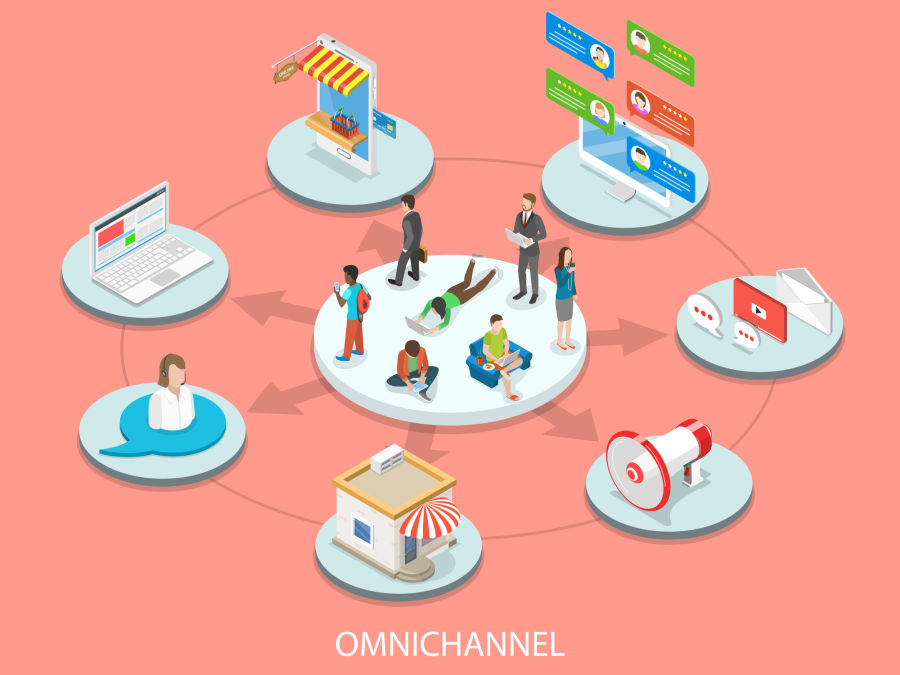//
Mar 8, 2022
Watermark Water Cooler | Industry Changes Over the Years
The marketing industry has changed a lot over the years. Listen to our marketing and advertising account executive about the changes seen over a 32-year career.
Cameron: Gini welcome to the Watermark water cooler. Thanks. Good to have you on, Jay's been in the background of a lot of these and finally we got her on, so you've convinced me. Johnny's been with a watermark for 32 years. Has seen a wide variety of different marketing tactics and kind of where the industry has gone has changed quite a bit.
So we wanted to bring Gini on just to kind of talk about those trends and what's happened. What's changed. So Jane, if you wouldn't mind. Introducing yourself to the audience. Sure. My name's Gini Queen, like Cameron said, I've been with Watermark for 32 years and have seen a whole lot of transition in not only the style of how things are put together in a marketing agency, but the philosophy, you know, over.
Gini: The account senior account executive with watermark. I started as a typesetter, which a lot of people probably don't even know that term anymore and have, is, have kind of gradually. Through the process too. Now I'm an account executive and handle some of the administrative parts too for Watermark.
Cameron: I mean, Gini doesn't even give herself justice for all that she has done inside a Watermark that was stopped. She thought, but she's done a little bit of everything and it's. It's so awesome to be a part of that journey with you, even though it wasn't for all of it, obviously. Well, it's been, it's been an awesome journey for me too.
So, so Gini, what do you know, from when you started type center, obviously? Yeah, I could go on and on about the changes in actually, you know, the process. You know, layout and design and typesetting. And today I wanted to concentrate more, a little bit more about the marketing philosophy as far as how we approach the clients, how we work with the clients, how we identify, you know, what our clients really need and how we message advertising campaigns and how that's changed over the years.
Gini: I often think of the old quote: it's Henry Ford. When he first rolled out the model T and he said, you can have any color you want. As long as it's black and people were okay with that back then, because they didn't have a whole lot of choices. The marketing philosophy has changed over the years.
That today it's all about choice, what people want when they want it, how they want it to, to deliver it to them. You need to cater to their wants and needs. Not what you want to tell them, just as we're talking. That kind of philosophy changed, obviously the web is what's driven that, right? You don't need somebody to inform you anymore.
You don't need that sales person to guide you through the process. That used to be the keeper of all the information. Right. You can go find that information from blogs or whatever. Yeah. Well, it's not just the web it's, it's the whole digital realm where, you know, it used to be this scattershot approach of, oh, we came up with this great campaign idea.
Put it out there and see how it acts now with all of the marketing tools, the marketing automation, the, the analytics, the SEO analytics, the, the technology behind all of that. Measurables that you can get at your fingertips. Now, as far as, you know, who's consuming the content, how they're consuming the content, who is responding to this ad versus that at A/B testing it used to be that you couldn't do AB testing because it cost too much.
But now it's just, you know, change a couple of words, change a couple of colors and see if that resonates more to your audience. It's absolutely true. Is there anything that you kind of wish came back since going back to, you know, the digital realm, as far as, you know, people being able to get all of this information and content, having it at their fingertips anytime they want, whenever they want, however they want it.
I would like to see one-on-one personal relationships come with. Back a little bit more full circle in that I think that people because of, you know, social media and the digital realm, they've kind of lost that human to human touch. And I think a lot of the tools now in marketing with, you know, video are huge.
Cameron: I think that is kind of a Testament to people who are really crazy. That human to human communication, more than just our chats and texts. You've probably spent, I'm guessing over half your career in print. And you know, you've obviously made a transition to, but you still are. And, we still do print work.
Gini: Right. I think that's something we've talked about. It is this omni-channel conversation. It's not just digital. It's not just print. It's not just, you know, most of the time we see clients who are really successful, including some print marketing inside of their campaigns. Why do you think that is?
You're having the background that you've had. Because I think people still desire to be able to touch something, to be able to, there's something comforting in being able to turn the pages of a book. I mean, you know, you've got your Kindles, you've got your iPads that you can, you know, read things on a screen.
But I think nowadays it's again, Books are kind of retro. It's kind of this comfort zone where people go, I want to just pick up a book and be able to turn the pages rather than swiping the screen. Yeah. Something is, is, as fashion would go are cyclical. They always come back. Is there something that you would say like we have, even though it's maybe gone to digital it's, it's still something that.
Always done in the past and it's just, it's just repackaged in a new, well, I mean, it's amazing and very exciting. Some of the techniques that the printers have come up with now obviously, you know, you have digital printing now. But the different varnish techniques, the different papers coming out, the different ink techniques.
I mean, you can have inks that smell like, you know, why ALEKS and chocolate. So yes, it's still a printed piece, but the technology again has opened a whole new world to two new printing experiences. So, I don't think printing is ever going to go away. It's just evolving with technology. Yeah. And I still think that there is, you know, this outbound kind of piece that is like billboards.
I mean, believe it or not, that's a printed thing. You see all kinds of advertising. And the airports and the subway on the bus, whatever it may be, that is a printed piece. People may not think about it that way, but it really is still a print. And I think the other thing too, is people still consume magazines.
Like that's another specifically I know, you know, we do a lot of B2B stuff, so we've seen success in very specific industry magazines that people still consume. A lot of people. The information is so niche well, and the beauty between combining the print advertising and the digital advertising is a lot of these trade publications.
And even, you know, national magazines, you can place an ad in their print publication, and they also have a digital version of that publication where you can click on it and have all the tracking, you know, for people who've, who are consuming the digital ads. Versus people who are, who are seeing the printed ads.
Cameron: So not only do you have the circulation from the print readers, you also can track the digital readers from their digital version. So it's a, it's a beautiful blend of the two with this longevity that you had in this industry. What's your secret Gini?
Gini: Personality is some of it. I mean, I'm a very low key person. I've taken, you know, some of those tests and I always come up with the, you know, I'm the golden retriever. I'm very loyal and I'm very even keeled. You need that in this industry, you're you also need to be very organized, which, you know, that's just kind of me. That's it. You know, in my personality, but I think the bottom line is as long as you can understand that your clients and the vendors that you're working with, everybody that you come in contact with they're people too, and they have background stories and they're dealing with stuff too.
And you just have to keep that in mind. And the end goal is to give our clients the best, highest quality product that we can with the tools that we have. And that's all we can hope for. And I will add the G as willing to evolve. I have definitely evolved. I, I, I know that the cheese has moved several times on you through your career so that I think that's another Testament too.
Just don't give me another project management tool. But yeah, I mean, I think that it's an industry that's constantly changing and that being willing to be able to constantly change with it and willing to learn is such a huge piece of being successful in this, in this world. So we covered a lot of stuff.
Cameron: Thank you so much for coming on with us Gini, as. We always want to get your feedback and your comments, make sure that you hit the light button so that we continue to do this oddly. And also just gives us some ideas of things that you're, you're wanting to know about the agency. About marketing in general.
We'd love to kind of create content specifically for the ones that the audience needs. That being said, thanks for joining us on the watermark water cooler, and we will see you next time.






